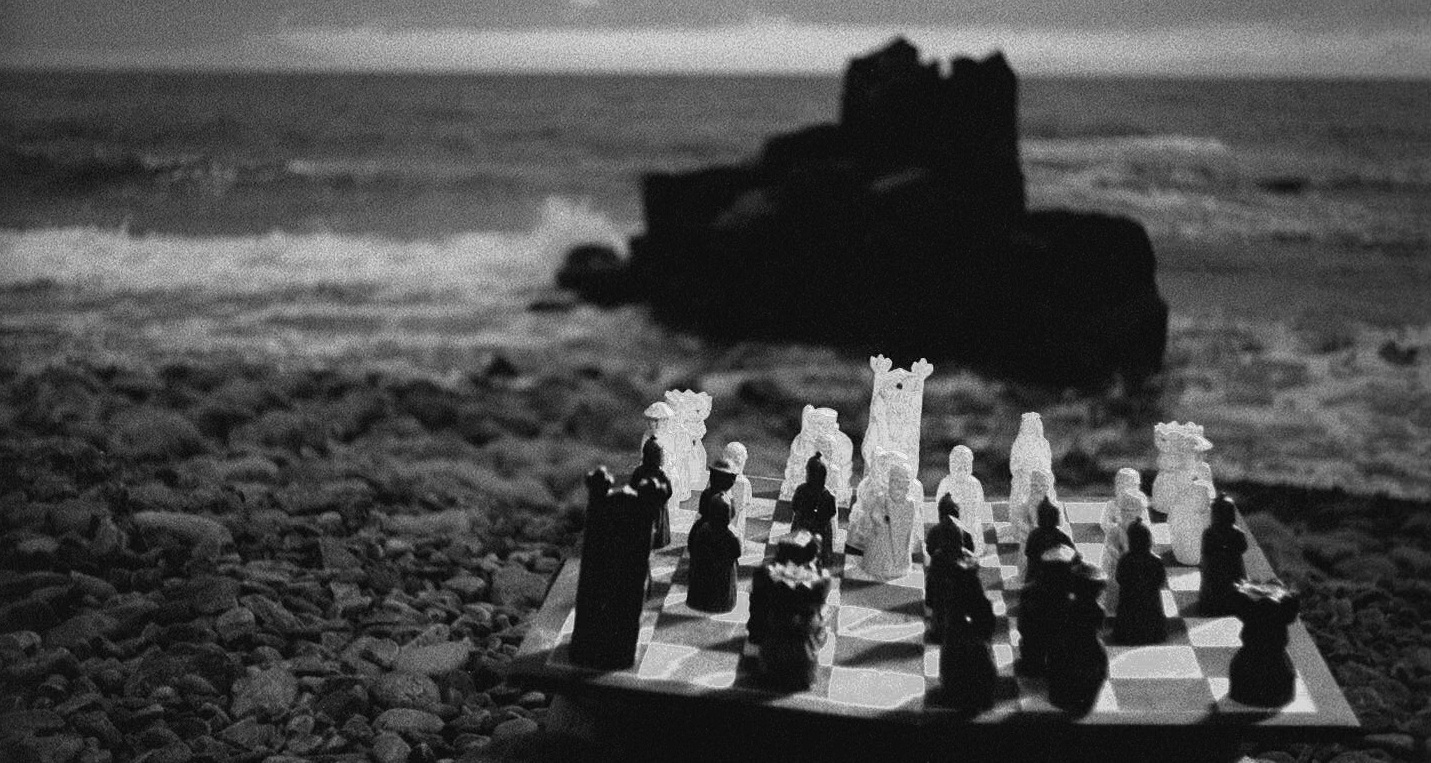
October 6, 2013, by Stephen Mumford
The Metaphysics of Chess
As soon as the necessities of life are secured, we turn to the arts but also to games. Arts and games are alike in having no immediate practical value but their very pointlessness reveals their intrinsic value to us. Games are sometimes called pastimes. It might look as if their purpose is merely to pass the time, as though that were desirable. There is undoubtedly something deeper in play.
Games can be fun. They allow us to acquire and practice various abilities, sometimes physical and sometimes mental. Also like the arts, at their best they teach us about our lives or offer metaphysical insight. They can reflect human preoccupations and fascinations.
I’ve been teaching my children chess and was very pleased with how much they immediately enjoyed the game. Why shouldn’t we regard its creation as one of the greatest achievements of humanity? To play is to become conscious of its gamely perfections. There is so much that one wants to do but is thwarted by the opponent’s moves and sometimes by one’s own pieces blocking the way. The game seems to have got the balance exactly right between the power of the combined pieces and obstacles that prevent the display of those powers.
Chess is deeply metaphysical. The various pieces have powers or abilities and the player’s task is to get them into the ideal circumstances in which they can manifest them. A rook, for instance, could dominate many spaces on the board but begins with its power held back, trapped within a wall of its own colour. The power of a piece can be understood in terms of the possibilities it has available if unhindered. A queen threatens more squares than a pawn; yet even a little pawn in the right situation can play an important role. Most of the game possibilities go unactualised. Each move closes off old possibilities and creates new ones. If one wants to understand a metaphysics of causal powers, chess is a good place to start.
When we consider chess we usually think of it in terms of tactics and mental agility. At the end you feel as if you’ve had a brain massage. The best players think through all the possibilities. They are assessing the unrealised powers of the pieces, calculating some numbers of moves in advance. As Aristotle emphasised, it is one thing to have powers but another to know how, when and where to use them. If one plays defensively, paradoxically one is more likely to face defeat. A daring attack keeps the opponent tied down, responding and reacting rather than pursuing their own plan. It is no wonder that those who face strategic and tactical problems in their professional or private pursuits find chess appealing both because it reflects the skills they require but also hones them.

Games are an essential part of human interaction, performance of leisure and fashioning of status- as attested to by numerous Renaissance images depicting games ( for example Sofonisba Anguissola’s Chess Players, or the beautiful surviving game boards.
Nice piece highlighting that social interaction can be facilitated and ritualised through art.
Nice post. Two more things I love about chess: every game starts in the same state; there is no role for chance. Are either true of any other game?
I believe the same can be said of Go (which also boasts a higher number of theoretically possible games on a standard size board).
I always begin teaching Aristotle’s Ethics by asking students for examples of things – “things” – that they know enough about to be able to tell a good version of one from a crappy version. Once a guy said “chess.” Basically, the content of the N Ethics and the Politics too followed from asking Aristotelian follow-up questions about his example. It was the perfect example. Seriously. You need phronesis to win at chess, not just cleverness. And that’s the least of it. So I very much like this use of chess to illustrate the Metaphysics, too. 🙂
Sorry abt the insipid emoticon. I always forget.
The weird thing about the unactualised possibilities is that they can actively change a players tactics. So even unrealised powers can have powerful effects – an opponent defers an advantageous move because I MIGHT use a piece in a certain way.